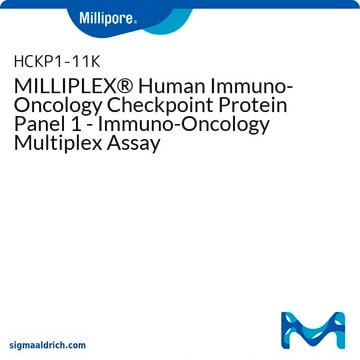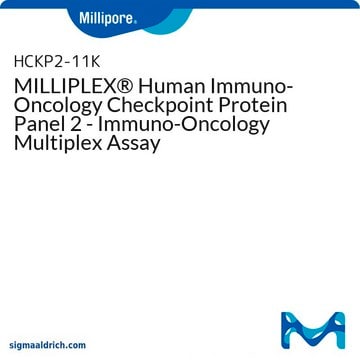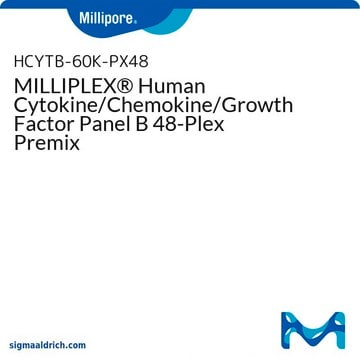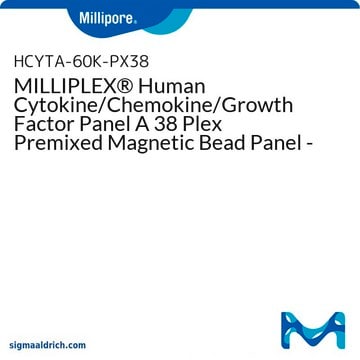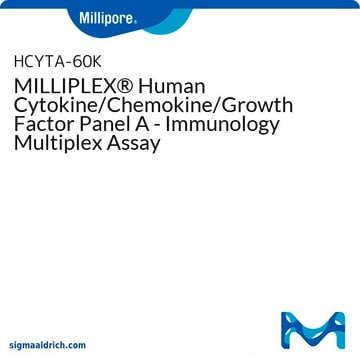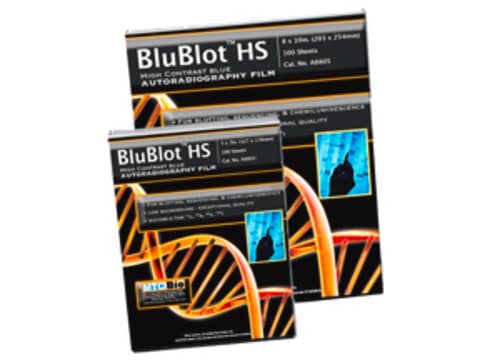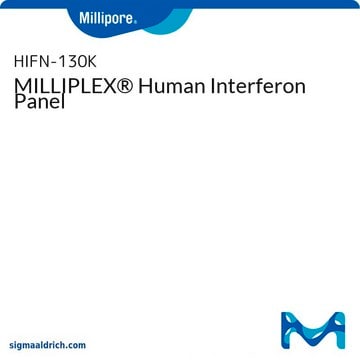HCKP1-11K-PX17
MILLIPLEX® Human Immuno-Oncology Checkpoint Protein Premixed 17-plex Panel 1 - Immuno-Oncology Multiplex Assay
Synonym(s):
17-Plex Immuno-Oncology Kit, Human Checkpoint Protein Panel, Immuno-Oncology 17-Plex Panel
About This Item
Recommended Products
species reactivity
human
manufacturer/tradename
Milliplex®
technique(s)
multiplexing: suitable
detection method
fluorometric (Luminex® xMAP®)
storage temp.
2-8°C
General description
Specificity
Application
Packaging
Storage and Stability
Legal Information
Disclaimer
Signal Word
Danger
Hazard Statements
Precautionary Statements
Hazard Classifications
Acute Tox. 4 Dermal - Acute Tox. 4 Inhalation - Acute Tox. 4 Oral - Aquatic Chronic 2 - Eye Dam. 1 - Skin Sens. 1 - STOT RE 2
Target Organs
Respiratory Tract
Storage Class Code
10 - Combustible liquids
Certificates of Analysis (COA)
Search for Certificates of Analysis (COA) by entering the products Lot/Batch Number. Lot and Batch Numbers can be found on a product’s label following the words ‘Lot’ or ‘Batch’.
Already Own This Product?
Find documentation for the products that you have recently purchased in the Document Library.
Related Content
The newer xMAP® Sheath Fluid PLUS formulation contains 3 modes of microbial action to eliminate potential environmental microbial resistance. See how the preparations compare in this performance comparison of the previous xMAP® Sheath Fluid to the new xMAP® Sheath Fluid PLUS formulation in MILLIPLEX® multiplex assays.
The newer xMAP® Sheath Fluid PLUS formulation contains 3 modes of microbial action to eliminate potential environmental microbial resistance. See how the preparations compare in this performance comparison of the previous xMAP® Sheath Fluid to the new xMAP® Sheath Fluid PLUS formulation in MILLIPLEX® multiplex assays.
The newer xMAP® Sheath Fluid PLUS formulation contains 3 modes of microbial action to eliminate potential environmental microbial resistance. See how the preparations compare in this performance comparison of the previous xMAP® Sheath Fluid to the new xMAP® Sheath Fluid PLUS formulation in MILLIPLEX® multiplex assays.
The newer xMAP® Sheath Fluid PLUS formulation contains 3 modes of microbial action to eliminate potential environmental microbial resistance. See how the preparations compare in this performance comparison of the previous xMAP® Sheath Fluid to the new xMAP® Sheath Fluid PLUS formulation in MILLIPLEX® multiplex assays.
Our team of scientists has experience in all areas of research including Life Science, Material Science, Chemical Synthesis, Chromatography, Analytical and many others.
Contact Technical Service